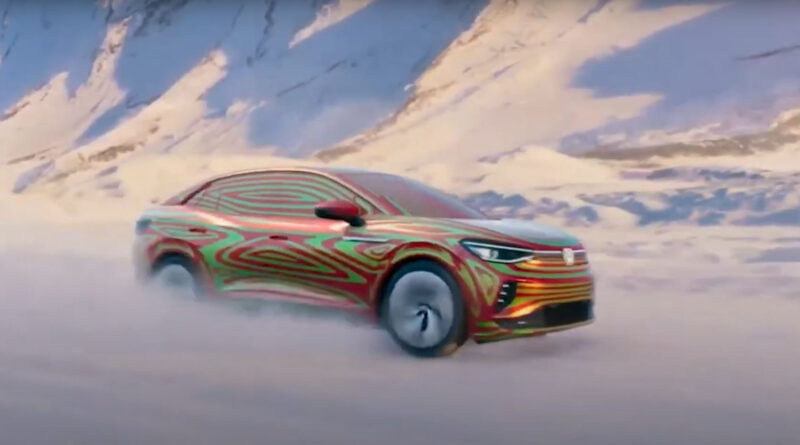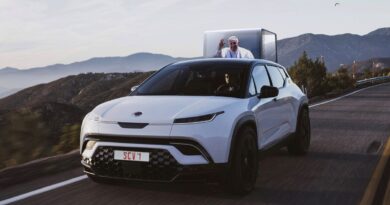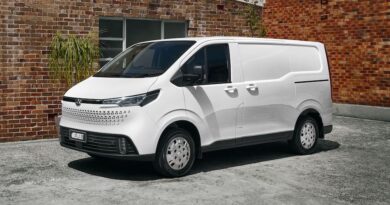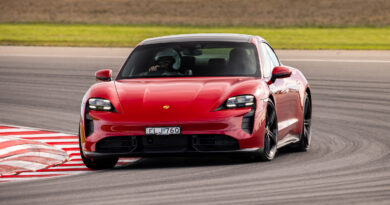Electric vehicle winners and losers: Volkswagen steps up as Toyota, Honda, Mazda and Nissan drop the ball – and Tesla and BYD run away with it | Opinion
Honestly, who’d want to be a product planner for a car company? Sure, if you were the first genius to guess that people would abandon cars for SUVs and you threw all your investment eggs into those big, towering, beasts, you’d look like a genius, but if you thought station wagons were going to be a thing forever, then you ended up looking like the marketing guys at Nokia (aka like someone who’s just had a particularly heavy Apple fall on their heads), or the people at Kodak who thought digital cameras would never catch on.
The hard part, of course, is that car-company schedules run in seven-year cycles (when a brand new vehicle is launched it has to last in that form for seven trips around the sun, although it will get facelifts along the way), so you have plenty of time to cash in on your successes, or you could be forced to repent at your long leisure.
I wonder, then, how many car-company execs are throwing their spare Nokias at the product guys who told them EVs would never catch on, that Tesla was a flash in the pan, like Laser Disc players or Google Glass (again, there’s that feeling of Apples falling from the sky to beat your head in, hello Vision Pro), and would never catch on.
And how many of those execs are at Japanese companies.
READ MORE: MG4 priced from $44,990 plus on-road costs as $3000 discounts offered on ZS EV
READ MORE: Australia’s cheapest EV? MG4 arrives in Australia ahead of H2 2023 deliveries
READ MORE: Complete guide to rebates, discounts and incentives when buying an EV in Australia
It would be a lot like running a television station and foolishly continuing to spend all your money on quality drama and intelligent documentaries, rather than investing in bimbos and f-boys having sex in houses with hidden cameras, or insane people hiding in the wilderness filming themselves (look, no production costs!). But at least you can jump on the reality train, sack all your writers and fix that problem quickly.
It seems highly likely, then, that there are people who turn up for work at car HQs expecting to be sacked for not investing in the idea of EVs sooner, faster and harder.
There is a mad, almost unseemly dash amongst many of the world’s biggest car companies to make up the huge, free early lead Tesla was given in the electric space; defining the term EV the way Frigidaire once defined being frightened of the opposite sex. No, sorry, fridges.
Tesla’s domination of the market, and the discussion, can best be summed up by the fact that the Model 3 was the third-best-selling vehicle in Australia earlier this year (behind two utes, imagine if there was a Tesla one of those). It’s also the kind of statistic that should make you nervous if you’re a brand with very few EV options in market, or in the pipeline.
In terms of who’s actually catching up fastest, there’s a newly published list, in the form of a report from the International Council on Clean Transportation, a non-profit research organisation.
The ICCT recently released “The Global Automaker Rating 2022:Who is leading the transition to electric vehicles?”, in which it rates the world’s 20 largest car makers (they make up 65 per cent of all car sales globally) in terms of how they’re adapting to an EV future.
Just for fun, and because I love talking about when I’m right, let’s start at the bottom, where we find that out of the bottom rated six brands – dubbed “laggards” by the ICCT – five of them were Japanese. (Regular readers will recall this scintillating column, in which I pointed out that no one in Japan seems to take EV transition very seriously at all, and the there’s a sense that they’re laughing behind their hands at the rest of the world.)
Each brand was given a mark out of 100 for Market Dominance, Technology Performance and Strategic Vision when it comes to shifting to EVs, and after averaging all three Suzuki managed a powerful score of ZERO.
Toyota, the world’s largest car company remember, managed 30, Honda 28, Nissan 2 and Mazda a fairly appalling 10. India’s Tata was the other Laggard, on 27.
The report pointed out that Japan has some catching up to do.
“All five manufacturers headquartered in Japan and Tata, headquartered in India, are at the bottom of our rating,” the report said.
“To improve, they need to increase their EV sales, set public ZEV targets, and invest in ZEVs. It is the case, though, that in the absence of effective government policies, the domestic markets for EVs in Japan and India are anaemic at present.
“However, these companies would have rated higher if they had announced stronger targets and investment plans for the ZEV transition.”
So, who did well on this list? VW, was right up there in a list of those seen to be Transitioners – the ones at least having a go, and in the right direction – scoring 53, just behind BMW on 56, but ahead of Renault (47), Ford (38) and Hyundai/Kia (38).
Volkswagen even got a pat on the head from Rachel Muncrief, Acting Executive Director of the ICCT.
“Considering the Dieselgate scandal was only seven years ago, it is remarkable to see VW emerge as a serious leader in the transition to 100 per cent zero-emissions vehicles,” Ms Muncrief said.
Tesla was top of the pops, which is slightly unfair in some ways as it only makes EVs, so it’s not exactly transitioning in any way, yet it still only scored an overall 83 (despite a perfect 100 for Strategic Vision), in front of Chinese giant BYD on 73.
Helpfully, the ICCT’s report also mentions that, via its one modelling, “nearly 100 per cent of all new passenger vehicles sold in leading markets by 2035 will need to have zero tailpipe emissions to put the transportation sector on a trajectory towards limiting global warming to below 2 °C, as defined in the Paris Climate Agreement”.
Do the European car giants wish they’d gotten on board sooner? Almost certainly, but look at them go now – particularly Audi, with its commitment to being EV only by 2032, and the cessation of combustion-engine development in 2026 (that really is soon).
The question is, are the Japanese product planners even slightly bothered about being at the bottom of this list? And if not, when will they be?





Domestically, Japan invested heavily in public transport for the population to not be completely reliant on personal motor vehicles. They also have the Kei car category which are quite efficient. Since that reality is what they see every day, perhaps they don’t have the same sense of urgency as other car-dependent nations. They are also simultaneously trying to be less reliant on nuclear and imported LNG for electricity, so electrifying all of their transport fleet may not seem a priority right now. From an export perspective though, they have fallen far behind – they should have workshopped export markets and transitioned to suit global demand.